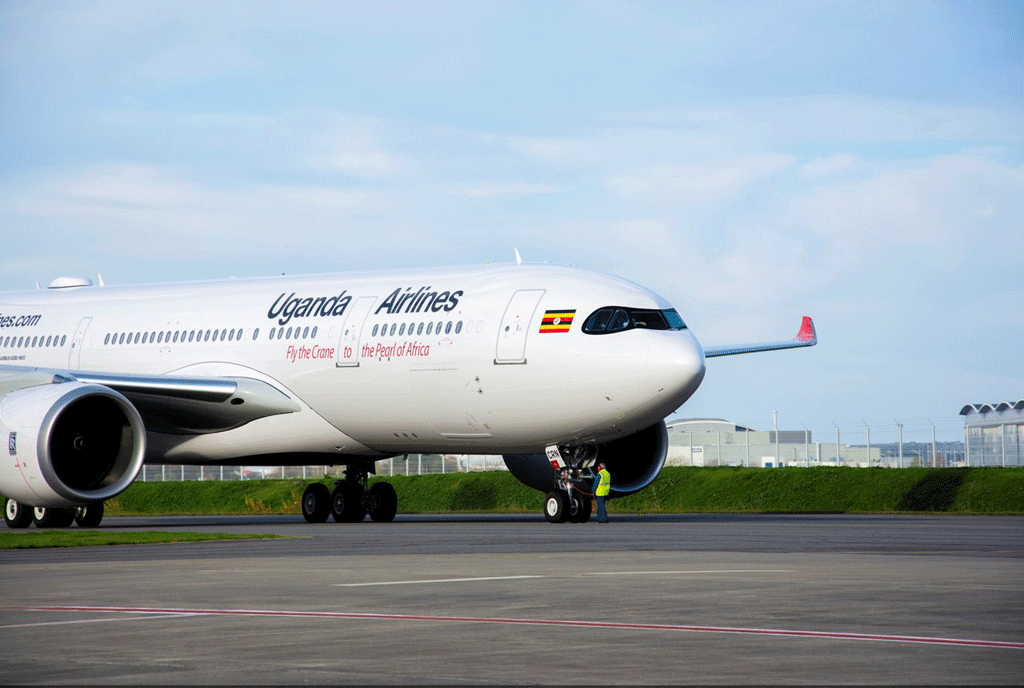Prime
Importance of a strong relationship between aviation and tourism sectors

President Museveni disembarks Uganda Airlines on November 23, 2022 upon arriving in Vitenam. PHOTO/COURTESY
What you need to know:
- Uganda can fully leverage the potential of the aviation and tourism sectors, leading to sustainable economic growth and prosperity for the country.
The interdependence between aviation and tourism is well-established around the world. According to the International Air Transport Association (IATA), the aviation industry supports 87.7 million jobs and contributes $3.5 trillion to the global economy. In Africa, aviation is a catalyst for economic growth, providing connectivity that enables tourism to thrive. For Uganda, the aviation industry acts as a gateway, connecting the country to the rest of the world and providing the necessary infrastructure for tourism to flourish.
With aviation being a crucial enabler of tourism, the growth of one sector directly impacts the other. As more tourists are attracted to Uganda, the demand for air travel increases, leading to more flights, investments in airport infrastructure, and job opportunities in both sectors.
Furthermore, the aviation and tourism sectors in Uganda create a multiplier effect on the broader economy. A report by the World Bank states that for every $1 million spent on tourism in Uganda, the industry generates an additional $470,000 in other sectors of the economy. This includes sectors such as hospitality, transportation, and retail, which benefit from the increased demand generated by tourists who travel to Uganda by air. This multiplier effect leads to more economic opportunities, job creation, and economic growth for the country as a whole.
Moreover, the strong relationship between aviation and tourism in Uganda has a positive impact on local communities. Many tourism activities in Uganda, such as gorilla trekking and community-based tourism provide employment and income generation opportunities for local communities.
These opportunities are often made possible by the availability of air connectivity, which brings in tourists from various parts of the world. Additionally, the revenue generated from tourism can be used to fund conservation efforts and support community development projects, contributing to sustainable and inclusive growth in Uganda.
However, challenges remain to fully leverage the potential of the aviation and tourism sectors. Issues such as high airfares, limited air routes, and inadequate airport infrastructure need to be addressed to ensure sustained growth of both sectors. Investments in improving aviation infrastructure, reducing air travel costs, and promoting Uganda as a tourist destination through effective marketing strategies can further strengthen the relationship between aviation and tourism, unlocking their full potential for the broader economy.
To fully realise the benefits of this relationship, it is important for Uganda to continue investing in aviation infrastructure, improving air travel affordability, and promoting the country as a desirable tourist destination. Collaborative efforts between the government, aviation industry stakeholders, and tourism authorities are essential in fostering a conducive environment for both sectors to thrive.
Uganda has already taken steps in the right direction with the expansion and modernisation of its main airport, Entebbe International Airport, and the establishment of the Uganda Airlines, the national carrier, which has opened up new routes and increased connectivity. Additionally, the government’s efforts to promote tourism through marketing campaigns, community-based tourism initiatives, and conservation efforts have been commendable.
As the aviation and tourism sectors continue to grow hand-in-hand, there are immense opportunities for Uganda’s economy. Increased tourism arrivals can lead to higher foreign exchange earnings, job creation, and economic diversification. The multiplier effect of tourism can also contribute to the development of infrastructure, services, and local communities, improving the overall standard of living for Ugandan citizens.
In conclusion, the interdependence between aviation and tourism sectors in Uganda is vital for the country’s economic growth and development. The aviation industry provides the necessary connectivity for tourists to access Uganda, while tourism contributes to the growth of the aviation industry. The multiplier effect of tourism on the broader economy, supported by a strong aviation sector, cannot be understated.
Therefore, it is imperative for Uganda to continue nurturing this relationship through investments in aviation infrastructure, affordability of air travel, marketing efforts, and community-based tourism initiatives. By doing so, Uganda can fully leverage the potential of the aviation and tourism sectors, leading to sustainable economic growth and prosperity for the country.
Derek Nseko, Founder & CEO at Airspace Africa, Aviation Consultant & Commercial Pilot




